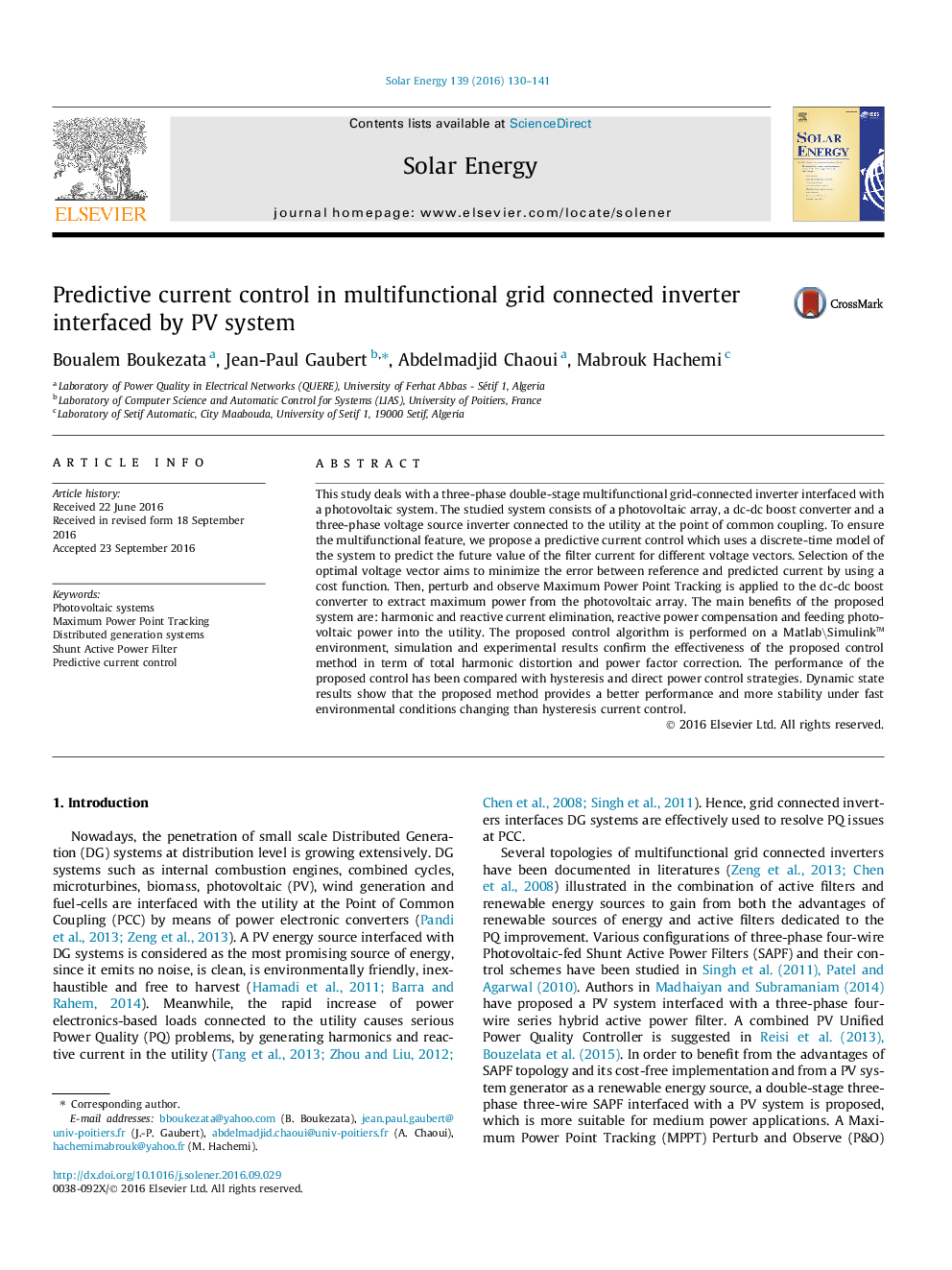| Article ID | Journal | Published Year | Pages | File Type |
|---|---|---|---|---|
| 5451377 | Solar Energy | 2016 | 12 Pages |
Abstract
This study deals with a three-phase double-stage multifunctional grid-connected inverter interfaced with a photovoltaic system. The studied system consists of a photovoltaic array, a dc-dc boost converter and a three-phase voltage source inverter connected to the utility at the point of common coupling. To ensure the multifunctional feature, we propose a predictive current control which uses a discrete-time model of the system to predict the future value of the filter current for different voltage vectors. Selection of the optimal voltage vector aims to minimize the error between reference and predicted current by using a cost function. Then, perturb and observe Maximum Power Point Tracking is applied to the dc-dc boost converter to extract maximum power from the photovoltaic array. The main benefits of the proposed system are: harmonic and reactive current elimination, reactive power compensation and feeding photovoltaic power into the utility. The proposed control algorithm is performed on a Matlab⧹Simulink⢠environment, simulation and experimental results confirm the effectiveness of the proposed control method in term of total harmonic distortion and power factor correction. The performance of the proposed control has been compared with hysteresis and direct power control strategies. Dynamic state results show that the proposed method provides a better performance and more stability under fast environmental conditions changing than hysteresis current control.
Keywords
Related Topics
Physical Sciences and Engineering
Energy
Renewable Energy, Sustainability and the Environment
Authors
Boualem Boukezata, Jean-Paul Gaubert, Abdelmadjid Chaoui, Mabrouk Hachemi,
